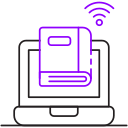In an increasingly connected world, digital literacy has emerged as a cornerstone of modern life. Understanding how to navigate, interpret, and create information through digital platforms is no longer optional—it is essential for participation in education, employment, and civic engagement. This exploration delves into the multifaceted aspects of digital literacy, highlighting its significance for individuals, institutions, and communities striving to adapt and thrive in today’s dynamic digital landscape.
From Basic Tech Skills to Critical Competence
Initially, digital literacy referred mostly to using computers and basic software. Over time, however, the rapid development of technology demanded a shift towards more nuanced abilities. Today, digital literacy encompasses critical thinking, information evaluation, content creation, and responsible participation in digital environments. Individuals must distinguish between credible and misleading content, use various digital tools effectively, and understand the implications of their online actions. This trajectory underscores the growing complexity of digital literacy.
Shifting Educational Requirements
Educational systems worldwide have recognized the need to adapt curricula to reflect changing digital realities. Instead of teaching only basic computer use, educators now focus on fostering deeper digital competencies, including safe and ethical Internet use, understanding algorithms, and digital problem-solving. These evolving standards are central to preparing students for modern workplaces and active citizenship. Schools integrate technology across subjects, ensuring that digital literacy becomes an intrinsic part of lifelong learning from an early age.
Impacts on Daily Life
The omnipresence of digital technology impacts nearly every aspect of daily existence, from communication and shopping to personal finance and healthcare. Navigating digital spaces safely and efficiently is essential not only for professional success but also for conducting private affairs. A digitally literate person can use online services with confidence, protect sensitive information, and make informed choices amid information overload. Recognizing these impacts reveals how foundational digital literacy has become in our lives.
Digital tools can personalize and enrich the educational experience. When students are digitally literate, they can leverage resources such as online databases, interactive simulations, and educational software. This capacity allows them to deepen their understanding and engage with content in diverse ways. Teachers, meanwhile, can use technology to tailor instruction to individual needs. The result is a more adaptable and effective educational system grounded in digital competence.
Digital Literacy and Education
Digital Literacy in the Workplace
Meeting Employer Expectations
Modern employers expect employees to possess more than just role-specific skills—they require proficiency in an array of digital tools and platforms. From project management software to cloud collaboration, understanding these technologies enables employees to perform efficiently, communicate clearly, and adapt to evolving workplace demands. As remote and hybrid work models gain dominance, digital literacy has become a minimum requirement for employability and advancement.
Unlocking Innovation and Productivity
Digital literacy empowers workers to use technology creatively, solving problems and improving workflows. By harnessing the latest digital tools, employees can automate repetitive tasks, analyze large datasets, and access global markets. These competencies lead to higher productivity and foster cultures of innovation. Forward-thinking organizations actively invest in digital skills training to unlock their workforce’s full potential and maintain a competitive edge.
Addressing Workplace Challenges
Workforces face new challenges, including cybersecurity threats, information overload, and the ethical use of digital tools. Employees with strong digital literacy skills are better equipped to identify phishing attempts, safeguard sensitive data, and ensure ethical workplace behavior. Cultivating these skills not only protects the organization but also builds a resilient, adaptable team that can meet the challenges of an ever-changing technological environment.
Previous
Next
Digital Literacy and Economic Opportunity
Expanding Career Prospects
As automation and digital transformation reshape the job market, many traditional roles now demand digital fluency. Workers with strong digital skills often command higher salaries and enjoy greater job security, as they can adapt to varying roles and challenges. Digital literacy also equips people to explore emerging career paths, such as data science, digital marketing, or remote freelancing, broadening opportunities far beyond local job markets.

Empowering Entrepreneurs and Small Businesses
Aspiring entrepreneurs and small business owners rely on digital literacy to compete in a fast-paced marketplace. Skills in building websites, managing e-commerce platforms, and leveraging social media are essential for reaching customers and scaling operations. Individuals and communities that harness these tools can boost their economic resilience, create jobs, and foster local development. Thus, digital literacy directly correlates with entrepreneurial success.
Overcoming Digital Divides
Many communities, especially in rural or underserved urban areas, face limitations in accessing reliable Internet and affordable devices. Digital literacy programs often integrate efforts to provide connectivity and hardware, creating opportunities for those previously excluded from the digital revolution. Governments, NGOs, and businesses play a critical role in redressing these inequities by enabling universal access as a foundation for digital skill-building.

Digital Literacy and Personal Empowerment
Enabling Self-Expression and Creativity
Digital technologies offer a vast canvas for self-expression, whether through writing, art, video production, or music. Those with digital literacy skills can use these platforms to share their ideas and talents with a global audience. Such creative engagement not only enhances personal satisfaction but can also lead to recognition, collaboration, and career opportunities. By lowering barriers to entry, digital literacy democratizes the creative process for all.
Strengthening Social Connections
Social media, messaging apps, and virtual communities enable individuals to maintain relationships across distances and time zones. Digital literacy ensures people can use these platforms responsibly and safely, deepening existing connections and forging new ones. These skills help navigate privacy settings, recognize scams, and foster meaningful dialogue, which is vital for nurturing supportive relationships in the digital age.
Advocating for Change and Participation
Digitally literate individuals are well-positioned to participate actively in social and civic movements, leveraging technology to organize, share information, and mobilize support for issues that matter. Online petitions, crowdfunding, and awareness campaigns all depend on digital competency to reach audiences and catalyze change. Personal empowerment thus extends into empowerment of communities and society as a whole, reflecting the broader societal value of digital literacy.
